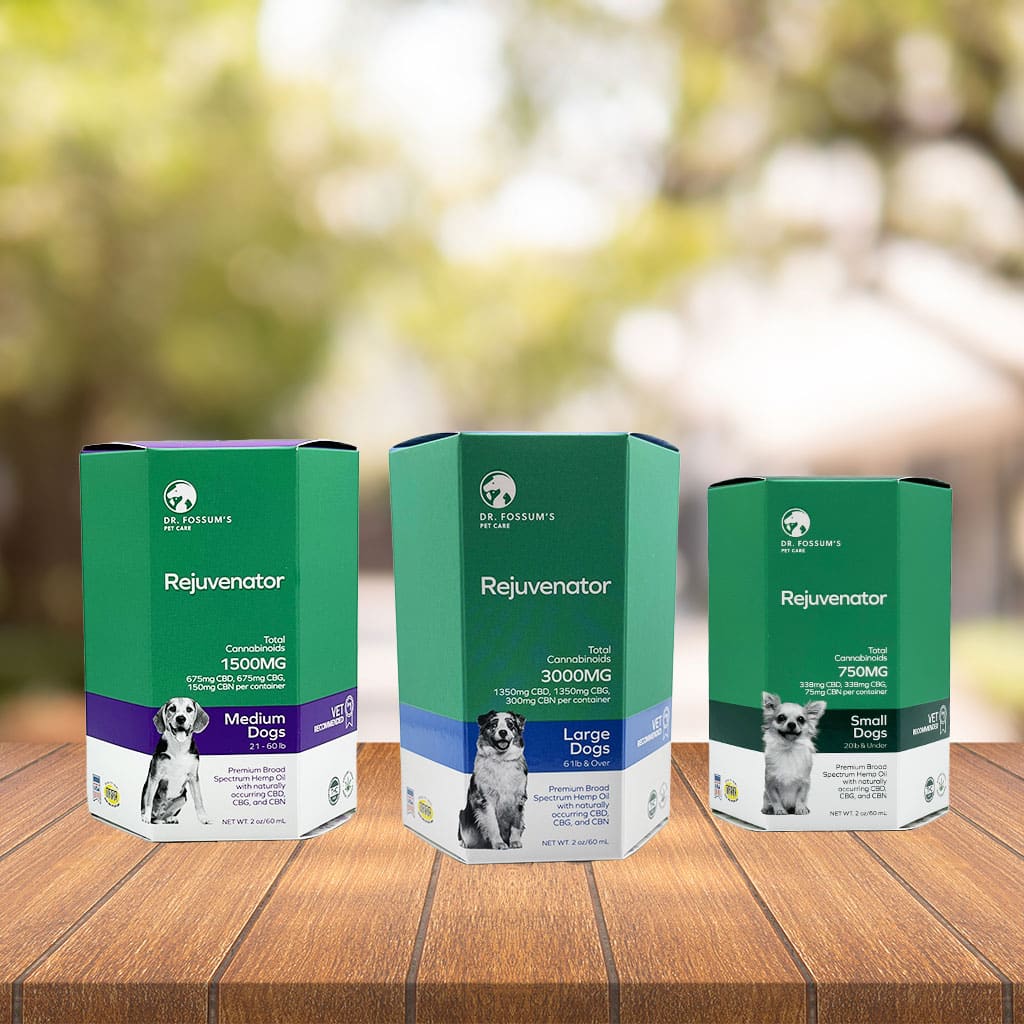- Case Studies, Pet Health

Safety Study shows that CBD is well tolerated in dogs after 60 days
Anecdotally, most veterinarians and pet owners believe that CBD is safe. However, only a handful of small studies have been published that verify what has become a mountain of anecdotal information.The National Animal Supplement Council has documented over 160 million administrations of CBD with only a handful of adverse events.
Finally, a large, randomized, placebo-controlled, blinded study looking at the safety of CBD in dogs has been reported. The study was run by the Waltham Petcare Science Institute, part of Mars Petcare, and was recently published in Frontiers in Veterinary Science. The studies’ goal was to demonstrate tolerance of a once-daily oral dose (4 mg/kg of body weight) of broad-spectrum THC-free CBD distillate over a six-month period to healthy adult dogs. Recent studies in dogs have investigated the short to mid-term safety of more moderate levels of CBD. Briefly, CBD concentrations of 2 mg/kg BW daily (23), 2 mg/kg BW twice daily (24, 25), 12 mg/kg BW daily (26), and up to 20 mg/kg daily (27), as well as escalating one-time dosing of CBD up to 62 mg/kg (28), were reportedly well-tolerated when orally administered to dogs. They also wished to quantify the level of CBD in the dogs’ fasted plasma, urine, and feces over the same period.
Study participants included 40 healthy dogs – 17 Labrador Retrievers; 8 Beagles; and 15 Norfolk Terriers – randomized and balanced across two parallel treatment groups: CBD and placebo. Researchers assessed a broad range of health measures, including biochemistry, hematology and urinalysis, in addition to monthly veterinary examinations, twice daily wellbeing observations, and a daily quality-of-life survey. These measures were taken before, then after two, four, 10, 18, 26 weeks of CBD feeding, followed by four weeks of washout. CBD concentrations were measured at the same intervals in plasma, feces and urine.
Veterinarians now have data to prove that CBD is safe in dogs.
Veterinarians have danced around the CBD topic with pet owners for 2 main reasons. They have been waiting on a large, peer reviewed safety study and for guidance from their veterinary state boards. The veterinary state boards have been waiting for data to prove the safety of these products. The MARS study, which was done in healthy dogs, found no difference in hematology or urinalysis parameters between treated and control groups during the study duration. Only transient changes were seen in calcium and protein levels. Changes were observed in ALP; levels of which returned to baseline after the washout period. The authors theorized that the change in ALP may be due to induction of cytochrome p450-mediated oxidative metabolism in the liver. No other abnormalities were noted in laboratory assessments of hepatic disease/dysfunction/toxicity (e.g., AST, ALT, GGT, bilirubin, fasted bile acids, albumin and cholesterol). Thus, the ALP increase observed was not assumed to be a clinically relevant biomarker for impaired liver health in these dogs. We are hopeful that the veterinary state boards will remove the proverbial handcuffs from veterinarians and let veterinarians recommend CBD without fear of losing their license.
Dosing
At Dr. Fossum’s Pet Care, we recommend a loading dose of 2 mg/kg, twice a day for 7 days for dogs and then clients may be able to reduce the amount given to be 1 mg/kg twice a day.. Our guidance is in line with the amount of CBD to be considered safe based on the study.
Insurance Companies
This study proves CBD safe. Insurance companies have been leading the way by covering part of their customer’s cost when purchasing CBD.
We are grateful to the folks at Mars Petcare for completing this study. We are hopeful to witness a changing of the tides from AVMA, veterinary state boards and the veterinary community.
Share this post:
Rejuvenator – Broad Spectrum Hemp Extract for Dogs
$49.99 – $129.99 — or subscribe and save 15% Select options



